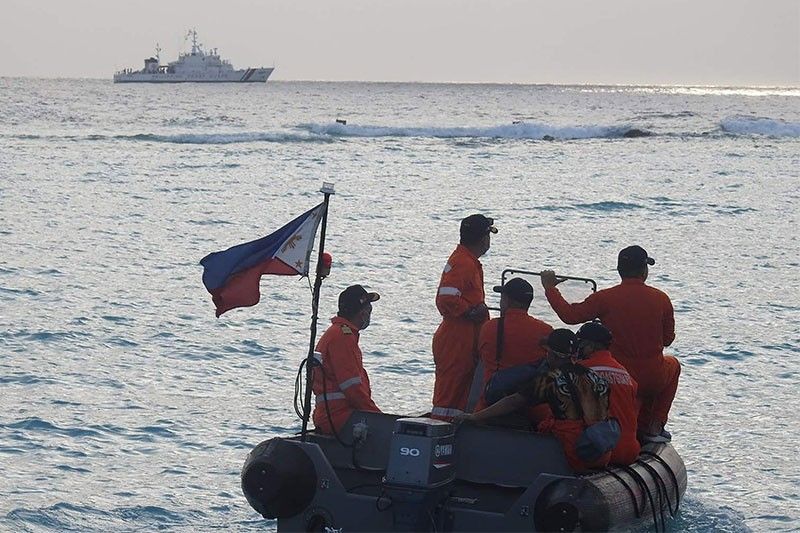
MANILA, Philippines — Philippine Coast Guard spokesperson Commodore Jay Tarriela warned the public against China-leaning parroted narratives of some Filipinos.
In a post on X (formerly Twitter) Monday, Tarriela cited three narratives that promote Chinese narratives to downplay its aggression in the West Philippine Sea.
Tarriela first pointed out that the narratives indicate that speaking up against China’s incursions in the West Philippine Sea can lead to an armed conflict.
“Exposing China’s aggression is not inciting war. By keeping our political leaders and countrymen aware of China’s violations of international law, we are safeguarding our country from political manipulation and disinformation,” the PCG spokesman said.
RELATED: Chinese vessels collide with Philippine boats on resupply mission
Tarriela also pointed out the narrative of the Philippines operating under the influence of the United States’ interests.
“Our transparency efforts are driven by our own national interest – the protection of the Philippines’ maritime rights. The Philippine Coast Guard and other government agencies are utilizing their own resources to document and monitor Beijing’s aggression in the West Philippine Sea,” the PCG spokesperson said.
Tarriela then highlighted the recent initiative of bringing journalists to the West Philippine Sea to “ensure accurate and unbiased reporting of the events they witness.”
“The PCG does not have editorial control over what these journalists report. Our dedication to transparency is independent of any external influence, and we prioritize the dissemination of factual information to the public,” he said.
Lastly, Tarriela mentioned that pro-China individuals are labeling those critical of China as “anti-Filipino and pro-US.”
He said that experts and government officials critical of China’s actions in the West Philippine Sea are motivated by their “dedication to the Philippines.”
“Their arguments are rooted in international law, such as the UN Convention on the Law of the Sea, and the Philippine Constitution. These individuals take principled positions based on defending our national interests,” he said.
The parroted pro-Beijing narratives were first reported by the Philippine Center for Investigative Journalism (PCIJ) on October 23.
The report showed that some individuals and organizations have echoed Beijing’s disinformation campaign related to the West Philippine Sea.
Penetrating national discourse
The narratives are circulated online and have also been part of national discourse, including press conferences and forums.
According to the PCIJ report, the parroted narratives have been echoed throughout press conferences and sometimes even in national TV interviews by pro-Beijing think tanks.
“But Beijing’s narratives find their way in national conversations. In a press conference, the crew of the Philippine Navy boats was asked to comment on claims they weren’t actually hurt during the water cannon attack,” the report.
The report also cited a TV interview in which the head of one think tank downplayed the use of the Chinese Coast Guard water cannons calling it “just a spray.”
The PCIJ report named two think tanks, one of which it claimed to be not pro-Beijing but “pro-peace and pro-Philippines.” The other one said that It doesn’t mind being associated with China.
The National Security Council said it has been monitoring several organizations and individuals parroting the pro-Beijing narratives with regard to incidents in the West Philippine Sea. — Ian Laqui
*****
Credit belongs to: www.philstar.com
 Atin Ito First Filipino Community Newspaper in Ontario
Atin Ito First Filipino Community Newspaper in Ontario






